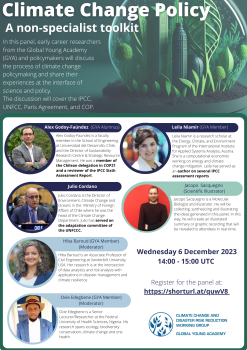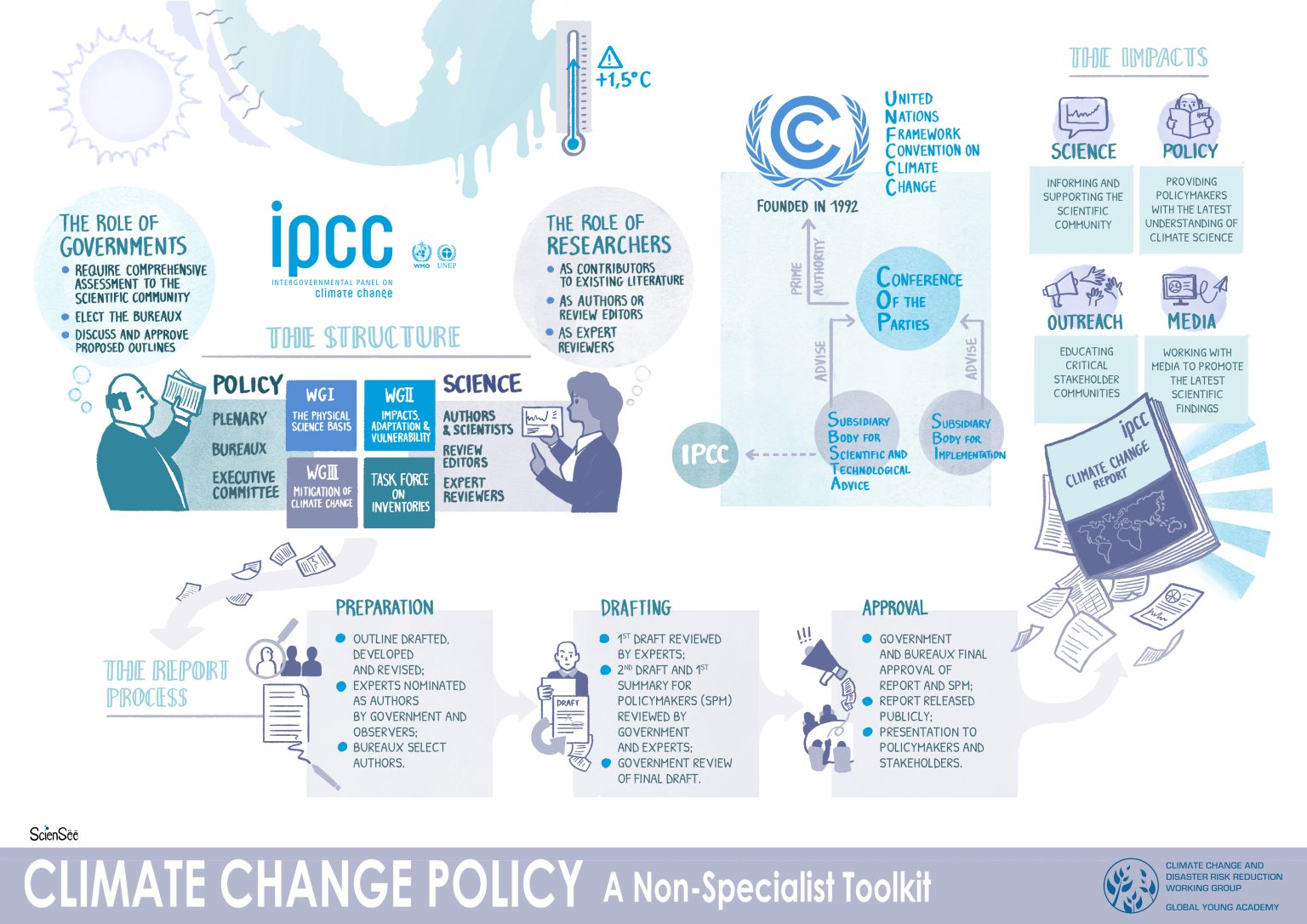As part of the GYA’s activities relating to COP28, the Climate Change and Disaster Risk Reduction Working Group organised a webinar on “Climate Change Policy: a non-specialist toolkit” in early December 2023.
The webinar was organised and led by the working group co-leads Hiba Baroud (Vanderbilt University, United States) and Ovie Edegbene (Nigeria). The webinar discussed mechanisms and processes of climate change policy and how early- to mid-career researchers can get involved. Key players of global climate policymaking were discussed as well as the goals of international climate agreements.
The speakers shared their experiences on the issues surrounding climate change at the interface of science and policy, referring to frameworks and bodies like the Intergovernmental Panel on Climate Change (IPCC), United Nations Framework Convention on Climate Change (UNFCCC), Paris Agreement, and COP.
GYA member Leila Niamir (International Institute for Applied Systems Analysis, Austria) discussed the process of policy making on climate change using the example of the IPCC and explaining their structures and work processes. Leila emphasised that researchers could get involved in the topic of discussion in various ways, e.g., by contributing to growing bodies of knowledge and literature; as authors or review editors – by contacting IPCC Focal Points and showing interest to be nominated; or as expert reviewers in the two IPCC review stages.
GYA Alumnus Alex Godoy-Faundez (Universidad del Desarollo, Chile) talked about the UNFCCC history and progress and work. He explained the role of researchers in climate change policymaking, arguing that they can address various levels of governments and other stakeholders. In order to get involved at the COPs, scientists should try to work with their national governments, or proactively develop their own skills in science diplomacy.
Audience members contributed a number of relevant questions related to the role of governments in the IPCC process, the evolving role of scientists in the climate crisis, and the issue of accountability in climate negotiations.
Throughout the session, molecular biologist and scientific illustrator Jacopo Sacquegno created a live illustration, which later fed into a more detailed infographic based on the discussions (see graphic at the top).

